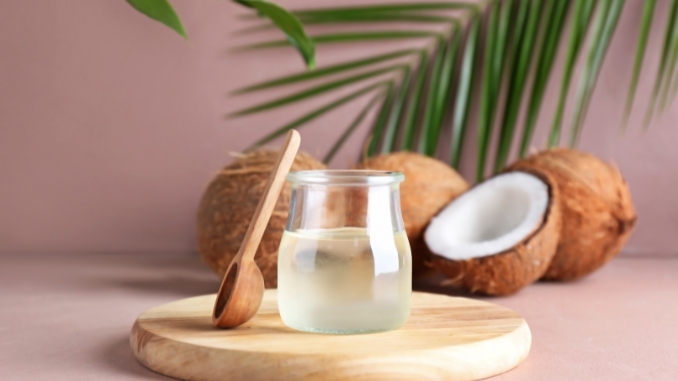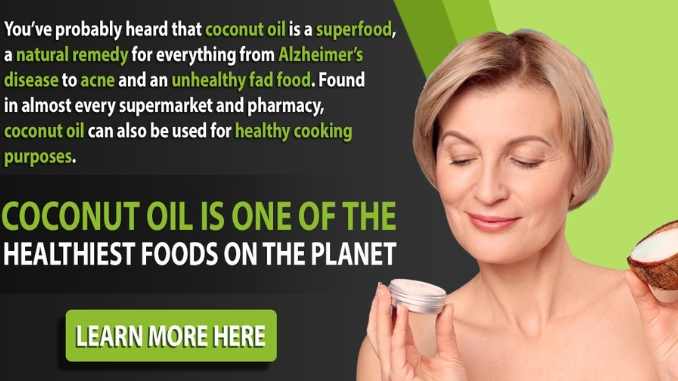If you’ve ever wandered down the health and beauty aisles or scrolled through skincare tips online, you’ve probably seen unrefined coconut oil pop up over and over again. I’m here to tell you—it’s not just hype.
After experimenting with countless natural remedies and consulting experts, I’ve come to appreciate why this oil has earned its glowing reputation.
Let me walk you through the coconut oil benefits, some expert insights, and how to make the best choices for your skin, hair, and overall health.
What is Unrefined Coconut Oil?
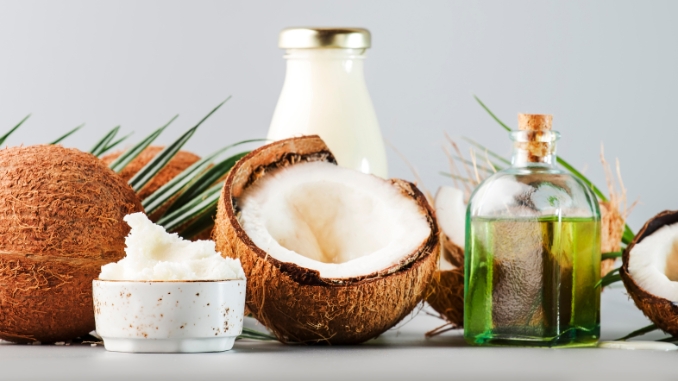
Unrefined coconut oil, or virgin coconut oil, is valued for its purity and nutrient-rich profile. Extracted from fresh coconut meat using methods like cold pressing, it avoids the high heat and chemicals used in refining.
This process preserves key nutrients like medium-chain triglycerides (MCTs) and lauric acid, known for their health benefits. With its natural coconut flavor and aroma, it’s a versatile choice for cooking and skincare.
Choosing unrefined coconut oil means embracing a product closer to its natural form, full of wellness-enhancing compounds.
The Benefits of Unrefined Coconut Oil
Unrefined coconut oil, also known as virgin coconut oil [¹], is extracted directly from fresh coconut meat without undergoing high heat or chemical processes.
This means it retains its natural nutrients, aroma, and flavor. Extra virgin coconut oil is particularly noted for its superior quality and health benefits. Here are the key benefits of unrefined coconut oil:
- Rich in Nutrients: Unrefined coconut oil is packed [²] with vitamins E and K, antioxidants, and lauric acid—a fatty acid known for its antibacterial and antiviral properties.
- Skin Savior: I use it as a moisturizer, especially during winter. Its hydrating and antibacterial qualities make it a go-to for soothing dry, irritated skin.
- Hair Health: When applied to my hair, it reduces protein loss, combats dandruff, and also leaves my locks silky smooth.
- Immune Support: MCTs (medium-chain triglycerides) in coconut oil can support the immune system by fighting off harmful microbes.
- Energy Boost: If you’re looking for a quick energy source, adding a spoonful to your morning smoothie can do wonders—those MCTs work fast!
- Digestive Health: It also supports gut health by promoting healthy bacteria and aiding in nutrient absorption.
Dr. Will Cole, a functional medicine expert, highlights that the medium-chain triglycerides (MCTs) in coconut oil are “very easy for your body to break down and use for fuel compared to the more common long-chain triglyceride fats.”
This means that MCTs can provide a quick source of energy for both the body and brain.
Nutrition Facts and Health Benefits
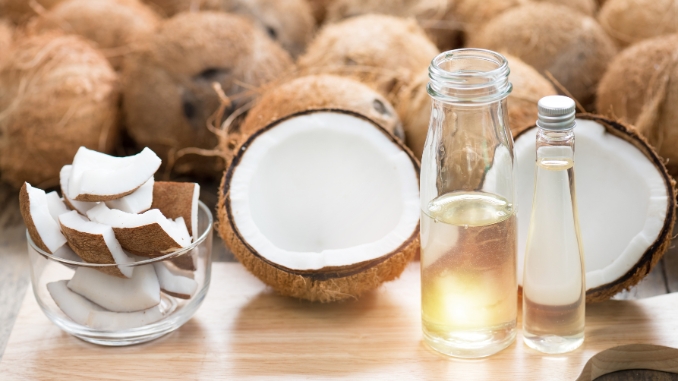
Unrefined coconut oil is a nutrient-rich source of health-promoting compounds. It contains 60–70% medium-chain triglycerides (MCTs) [³], which provide quick, easily digestible energy, and 40–50% lauric acid, known for its antimicrobial and antiviral properties.
Additional compounds like capric and caprylic acid further enhance its benefits. This oil also offers small amounts of vitamin E and vitamin K, supporting skin health and blood clotting.
Its health benefits include boosting metabolism for weight management, improving cholesterol and heart health, delivering antimicrobial and anti-inflammatory effects, and nourishing skin and hair. With its natural energy-boosting MCTs, unrefined coconut oil is a versatile and valuable addition to any diet.
Pros and Cons of Using Coconut Oil for Skin

I’ve had my fair share of trials using coconut oil for skincare. While it’s been a lifesaver for some areas, there are a few things to watch out for:
Pros:
- Deep hydration for dry skin.
- Natural barrier to lock in moisture.
- Versatility—it works as a cleanser, lip balm, and even a makeup remover.
- Apply coconut oil immediately after a shower to lock in moisture and enhance skin hydration.
Cons:
- If you have oily or acne-prone skin like me, be cautious. Coconut oil is comedogenic, meaning it can clog pores if used excessively.
- Its heavy texture might not suit everyone, especially if your skin is on the sensitive side.
Using Unrefined Coconut Oil for Health and Wellness
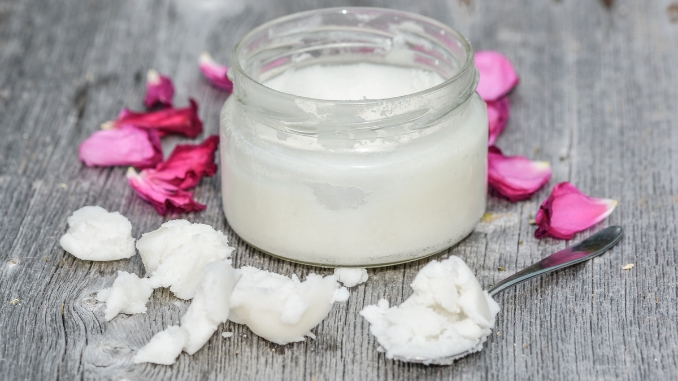
Unrefined coconut oil is a versatile addition to any wellness routine. In cooking and baking, it works as a nutritious alternative to other oils, imparting a mild coconut flavor.
For skincare, it hydrates and also protects the skin with its moisturizing and antibacterial properties. As a deep conditioner, it helps reduce protein loss and combats dandruff, making it great for hair care.
You can also use it as a dietary supplement—a spoonful in a smoothie offers a quick energy boost. For oral health, try oil pulling by swishing it in your mouth to reduce bacteria and improve dental hygiene. With its many applications, unrefined coconut oil is a simple yet powerful tool for overall health.
Cooking and Baking with Unrefined Coconut Oil
Unrefined coconut oil is a versatile choice for a range of culinary uses. It can replace butter or other oils in baking, adding a subtle coconut flavor to cookies, cakes, and muffins.
Its rich texture enhances sauces and marinades, while its high smoke point makes it ideal for stir-frying. Adding a spoonful to smoothies boosts nutrition, creates a creamy texture, and adds a hint of tropical flavor.
Whether baking, cooking, or blending, unrefined coconut oil is a nutritious and flavorful option.
Quality vs. Quantity: Why It Matters
One lesson I’ve learned is that not all coconut oils are created equal. Quality matters far more than quantity. A small dab of high-quality, unrefined coconut oil can outperform a gallon of the refined stuff.
Look for terms like “cold-pressed” and “virgin” on the label—these ensure minimal processing and maximum nutrients. High-quality coconut oil is also often produced by pressing fresh coconut meat, ensuring the retention of its natural nutrients.
How to Choose the Best Quality Unrefined Coconut Oil
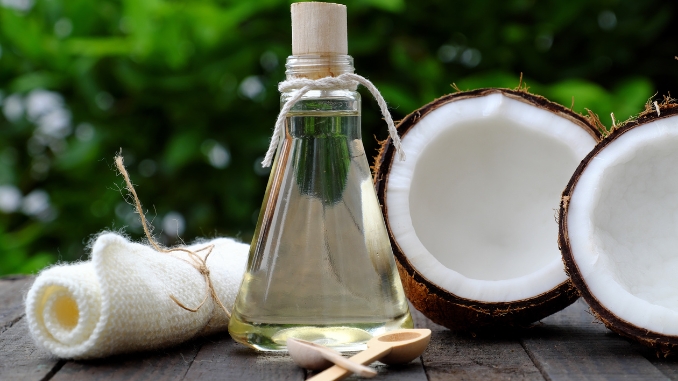
Here’s how I pick the best unrefined coconut oil for my needs:
- Cold-Pressed: This method retains all the natural nutrients and flavor.
- Virgin or Unrefined: These oils have not been bleached or deodorized, so you’re getting the purest form. Unlike refined oils that use dried coconut meat, virgin or unrefined oils are made from fresh coconut meat, preserving more nutrients.
- Glass Packaging: I avoid oils stored in plastic containers since they can leach chemicals into the oil over time.
- Certified Organic: Organic coconut oil is free from pesticides and harmful chemicals—a must-have for me.
Organic vs. Non-Organic Coconut Oil
When I first started using coconut oil, I wondered if organic was worth the extra cost. After trying both, here’s what I’ve found:
Organic Coconut Oil:
- Free from harmful pesticides and chemicals.
- Sustainably sourced, which aligns with my eco-friendly values.
- Richer in natural aroma and nutrients.
Non-Organic Coconut Oil:
- Cheaper but often processed with chemicals.
- May contain pesticide residues that can also be harmful in the long term.
- Refined coconut oil typically uses more processing methods, which can reduce its nutritional content.
Potential Risks and Considerations
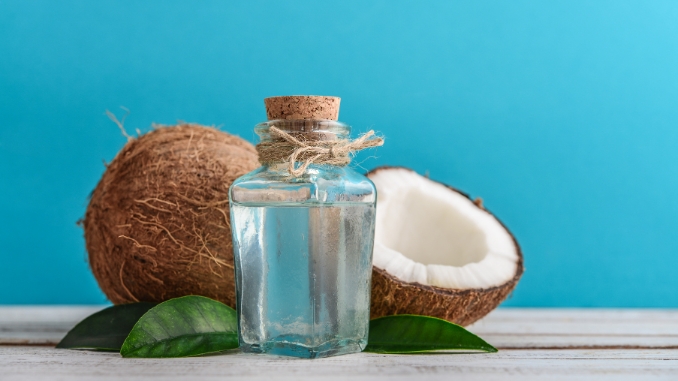
While unrefined coconut oil has many health benefits, it's important to consider potential risks.
Its high saturated fat content, even though mostly medium-chain fatty acids, can raise cholesterol levels if consumed excessively, so moderation is essential.
Some people may experience allergic reactions, such as skin irritation; a patch test is recommended before widespread use.
Coconut oil may also interact with medications like blood thinners, so consulting a healthcare professional is wise if you have concerns.
By staying mindful of these factors, you can safely enjoy the benefits of unrefined coconut oil.
Storage and Shelf Life of Unrefined Coconut Oil
To maintain the quality and extend the shelf life of unrefined coconut oil, proper storage is essential. Keep the oil in a cool, dark place, away from direct sunlight and heat sources.
A pantry or cupboard is ideal. Ensure the container is tightly sealed to prevent moisture from entering, as this can also lead to spoilage. When stored correctly, unrefined coconut oil can last up to two years.
By following these storage tips, you can ensure that your unrefined coconut oil remains fresh and effective for all your health and wellness needs.
Conclusion
Unrefined coconut oil is a powerhouse—whether you’re using it to nourish your skin, strengthen your hair, or boost your energy. The key is choosing a high-quality, organic option and using it mindfully.
From my experience, it’s an affordable and versatile addition to any wellness routine.
Ready to give it a try? Here’s a comprehensive guide to choosing the best coconut oil for your needs. Trust me, once you go unrefined, there’s no going back! Check out this Guide to Coconut Oil now!
Frequently Asked Questions
Is a spoonful of coconut oil a day good for you?
Yes, in moderation, it can provide quick energy and support metabolism due to its MCTs, but excessive consumption may raise cholesterol.
What are the side effects of unrefined coconut oil?
Potential side effects include increased cholesterol if overused, skin irritation in sensitive individuals, and possible medication interactions.
How long does unrefined coconut oil last?
Typically, it lasts 1–2 years if stored in a cool, dry place.
Who should avoid coconut oil?
People with coconut allergies, high cholesterol, or those taking certain medications like blood thinners should avoid or limit its use.

